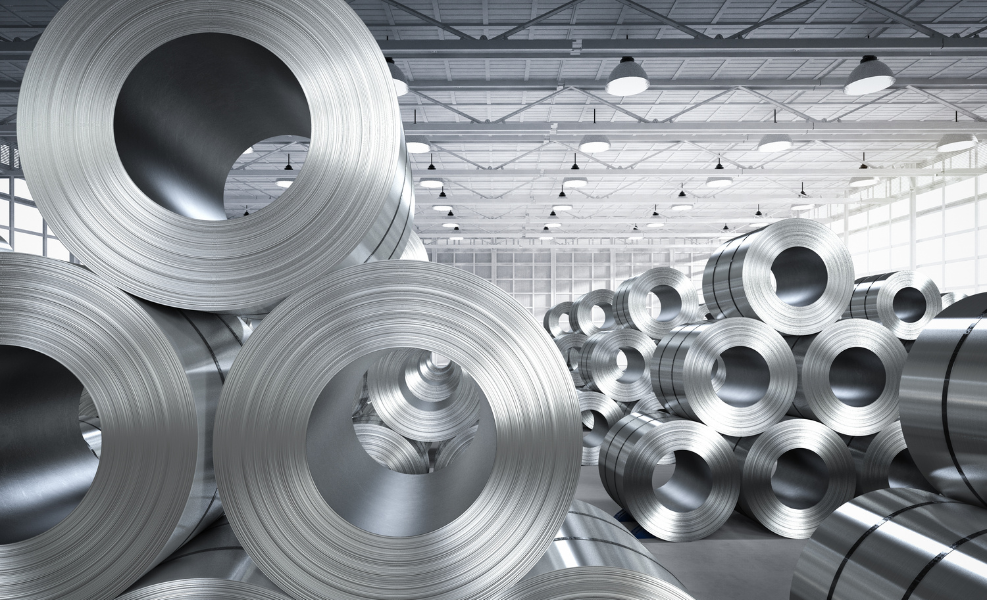A 25% tariff could raise home prices, disrupt supply chains, and hurt affordability

Canadian homebuilders are warning that new US tariffs on steel and aluminium imports could push housing costs even further out of reach as construction expenses rise.
With material prices already elevated from inflation and pandemic-driven supply chain disruptions, the industry is bracing for yet another financial strain that could slow new home construction and limit affordability.
The Ontario Home Builders’ Association (OHBA), which represents more than 4,000 companies in the development and renovation sector, said the tariffs could have serious consequences for both homebuilders and buyers.
OHBA chief executive CEO Scott Andison said that could be “a brutal blow to the housing sector and therefore to housing affordability.”
“When you throw something as dramatic as trade tariffs into an environment that’s already suffering from low margins, high interest rates and high input costs, the potential for costs… going up makes builders quite nervous,” Andison said in a statement. “This is just something that puts the development market into a bit of chaos.”
Why builders are concerned
The 25% US tariff on steel and aluminium from Canada, signed into effect by President Donald Trump, is set to take effect on March 12. The White House has also threatened additional tariffs on all Canadian imports, though those measures are delayed until at least March 4 as both governments discuss trade policies.
The tariffs would add pressure to already strained construction costs, Andison warned, making it more expensive to build new homes. That’s a major concern in a housing market where affordability is already a critical issue, particularly for first-time homebuyers.
For homebuilders, the tariffs could raise the price of key construction materials, leading to higher home prices for consumers. Andison pointed out that building material costs surged during the pandemic, especially lumber, and never fully returned to pre-COVID levels. With steel and aluminium now facing new trade restrictions, the market could see another wave of price hikes.
Read next: Tariff or not, California homebuilders still need Canadian lumber – at any cost
“When you start making Canadian products less of interest to other markets such as south of the border in the US, that reduces the amount being produced because markets have decreased outside of Canada,” Andison explained. “And when you start reducing the amount that’s being produced, the cost of domestic sales obviously goes up.”
Retaliation could worsen the problem
Canada sends $20 billion worth of steel and aluminium products to the US each year, making the American market critical to Canadian manufacturers. Some industry leaders fear that if Canada retaliates with its own tariffs, it could make matters worse by further raising costs on imported construction materials like cement, gypsum, and lumber.
Andison said two-way tariffs on other construction materials such as cement, gypsum and lumber could push costs “into a crazy level that makes any construction unviable.”
Even without retaliatory tariffs, the housing sector is already struggling to keep costs manageable. Homebuilders say they can still construct homes, but they worry that buyers won’t be able to afford the final price tag.
“Right now, our builders can build homes, but the problem is that they would have to build them at a price that consumers cannot afford, particularly first-time homebuyers,” said Andison. “They’re looking at numbers that are just in many ways outside of their scope.”
The concern isn’t just about homebuilding costs – the broader economy could also feel the impact. According to BMO economist Robert Kavcic, Canada exported $35 billion in steel and aluminum to the US last year, representing about 1% of GDP.
The US is Canada’s largest buyer of aluminium, importing over three million tonnes annually, according to the U.S. National Trade Administration.
The Canadian Chamber of Commerce has criticized the tariff decision, with president Candace Laing calling it “wrong on so many levels” and warning that uncertainty around trade policy is not going away anytime soon.
Make sure to get all the latest news to your inbox on Canada’s mortgage and housing markets by signing up for our free daily newsletter here.



